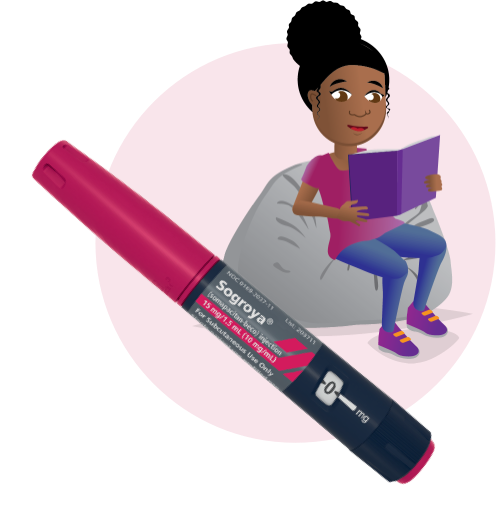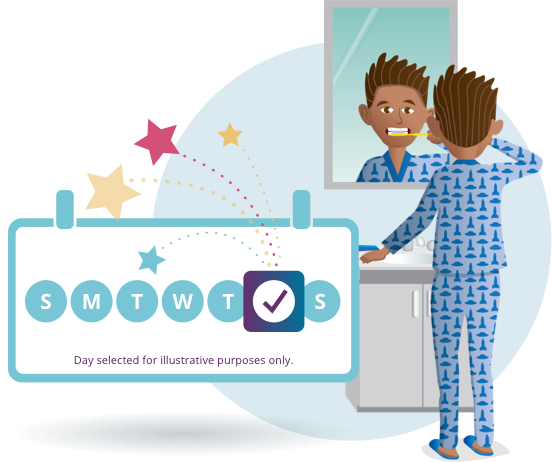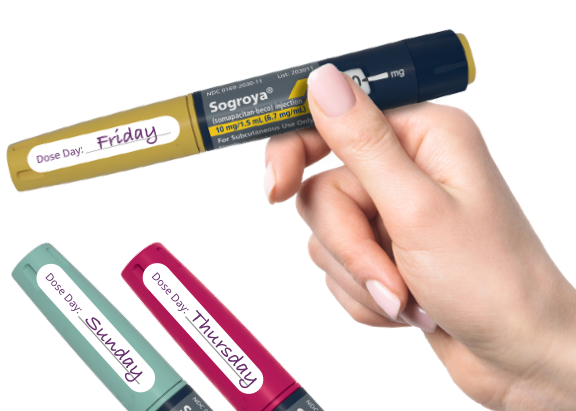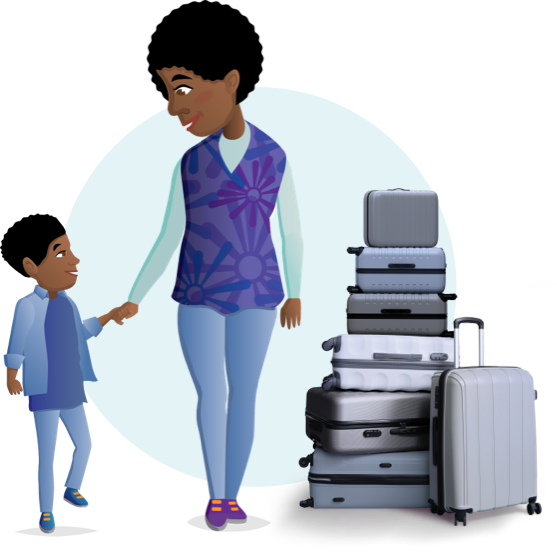
Looking for tips for taking Sogroya®?
Children may be wondering about getting started. These tips about setting up a routine and staying consistent may help.
Preparing for injection
Choose a quiet and comfortable location with enough space for the supplies you’ll be using, like alcohol wipes and a sharps container. Try storing supplies together in a dedicated bag or caddy—one that your child can decorate!
Perform the injection when your child is relaxed and mentally prepared. Reading books or singing songs may help. Other tips on this page, like following a routine and offering rewards, can also be helpful.


Setting a routine
Consistent routines are an important part of taking the medication as prescribed by your doctor. To stay consistent, try:
- Setting alarms or reminders so that you inject at the same day and time each week.
- Checking off each week’s injection on a calendar or checklist after you complete it.
- Include the injection as a part of other weekly routines for your family.
You choose the day.
We'll help you stick to it.
Order these free reminder magnets in the shape of the Sogroya® pen and stick them on any magnetic surface to help remind you when your once-weekly dose is scheduled. You must have a Sogroya.com account to order.


Maintaining motivation
There are lots of ways to keep the process fun and interesting, such as:
- Offering rewards for certain milestones, like completing a full month of injections or outgrowing an item of clothing.
- For the first few weeks of injections, giving your child a new treat or prize with each one.
- Having open and honest conversations when your child is reluctant or resistant.


Traveling with Sogroya®
Taking Sogroya® on the road (or in the air)? Remember to:
- Plan the number of doses you need, so you can pack enough pens.
- If you’re flying, prepare for security with a doctor’s letter and prescription label details.
- Carry the medication with you. Don’t check it with luggage.
- Keep new Sogroya® pens fresh with a cooler and ice packs. You can store the Sogroya® pen at room temperature up to 77 ºF and up to 72 hours, whether it is in use or before first use with cap on.a
aThe pen should be refrigerated (36 °F-46 °F). The pen can be taken in and out of a refrigerator as needed. The pen must be discarded 6 weeks after first use, or if it has been frozen, or in temperatures warmer than 86 °F. Keep Sogroya® away from direct heat and light. If storing in a refrigerator store at 36 °F to 46 °F with the cap on and in the original carton to protect from light.
Talking to people about treatment
It’s up to you whom you tell about your child’s treatment and how much detail you provide. You might choose to inform some people, like teachers, coaches, or other caregivers, so they’re aware of possible side effects or can assist with injections.
Some parents go into depth about the diagnosis and what it means. Others keep it short and simple.
Bottom line: This is your child’s story. Tell it in whatever way feels best and most logical to you.

How charming!
Sign up for access to free charms and stickers to add a bit of fun to the pen experience.
Explore Camp Sogroya®
Discover inspiring stories about families navigating pediatric GHD.

